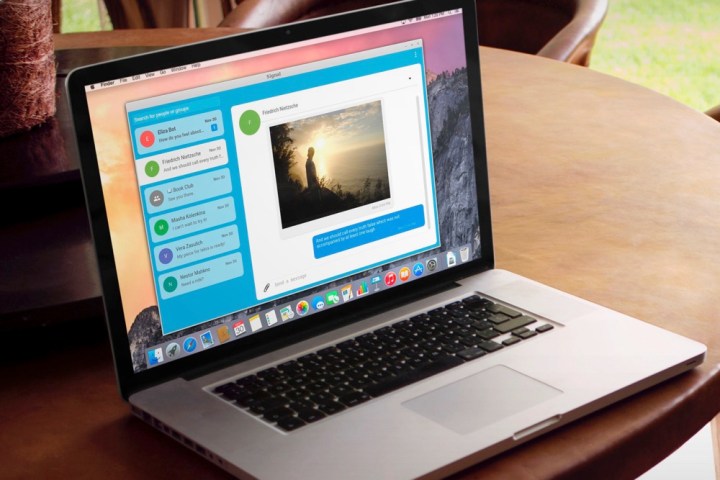
The app comes from a group of developers who have historically stood their ground on privacy issues, thereby deeming it by some a less threatening alternative to Facebook’s social messaging behemoth.
The Signal beta first came out for desktop to a select crowd of specially invited users eager to try out the software last December. While it doesn’t have nearly the install base as Whatsapp, its developer Open Whisper Systems still claims to be improving the look and feel of the service, resulting in increased traffic.
In the app, users can pull up chat windows to communicate in either individual or group settings with the added ability to attach photos and videos, similar to iMessage or Google Hangouts. Unfortunately, while the mobile app boasts an audio calling feature, it’s notably absent on the desktop version. Video calling, meanwhile, is missing from them both.
Granted, there’s a solid reason for this. Voice and video calling isn’t as easy to implement securely in a browser. Then again, that doesn’t explain why video calling can be accomplished in the mobile version, or why there isn’t a standalone desktop app independent from a browser. Not everyone uses Chrome, after all.
The reason may be that Signal is coming from a small non-profit group, Still, delivering on mass market appeal is essential for the app, since messenger apps lacking an audience don’t tend to get very far. We’ll have to see if the app’s encryption capabilities are enough to attract users.

